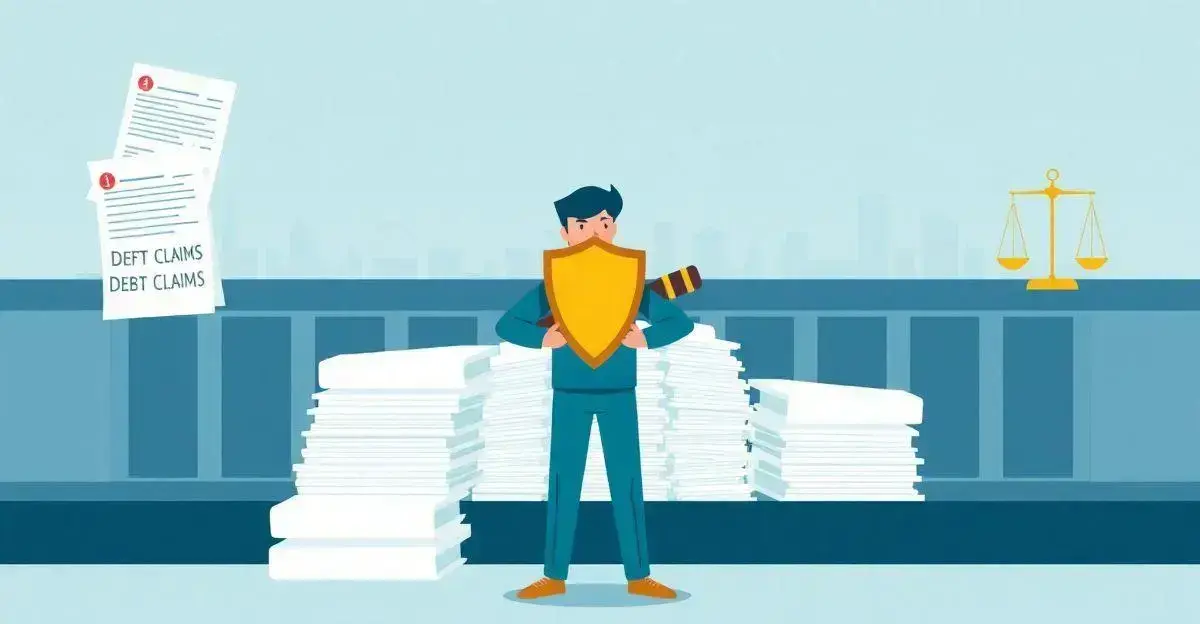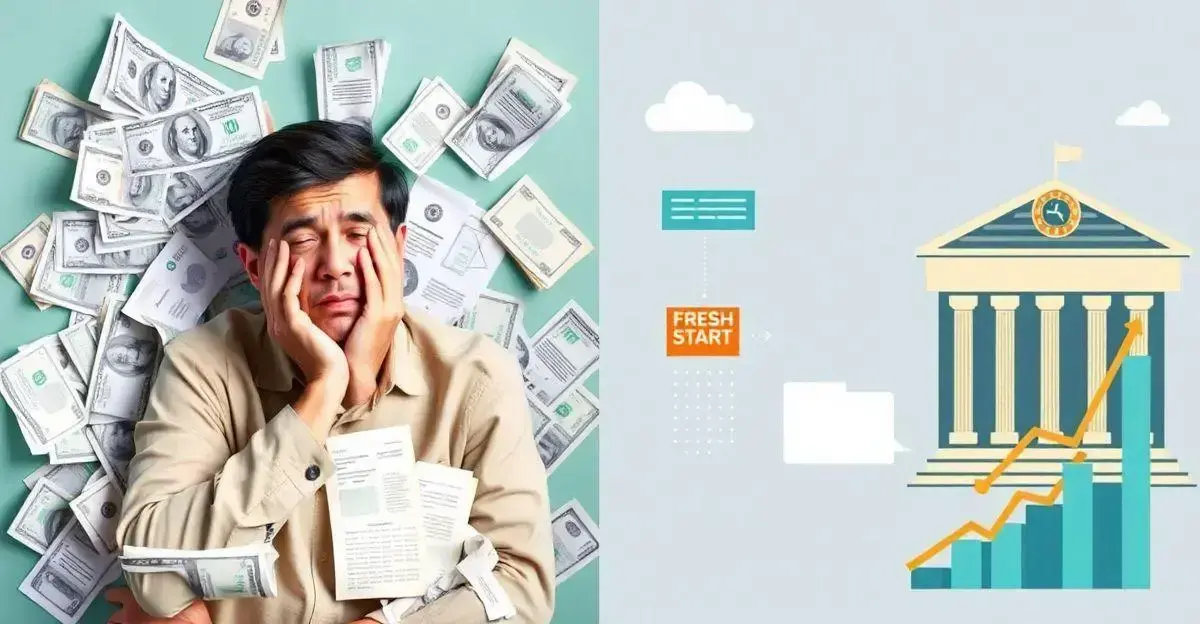The Florida statute of limitations for credit card debt plays a vital role in protecting consumers. Understanding these regulations can help you navigate debt more effectively.
Understanding Statute of Limitations
The statute of limitations is a legal time limit for filing a lawsuit, and it varies by state. In Florida, this limit is four years for credit card debt. This means creditors have four years from the date of last payment or the date of default to file a lawsuit against you. Understanding when this period starts is crucial for your financial planning.
You might wonder how this time limit applies in real-world scenarios. If you haven’t made payments on your credit card for over four years, creditors can no longer sue you to recover the owed amount. However, keep in mind that while they may not sue, they can still attempt to collect the debt through phone calls and letters.
Knowing the Florida statute of limitations for credit card debt can empower you. If you realize the debt is past its limit, you can respond confidently to creditors, possibly preventing unnecessary stress.
It’s essential to document any communication and remain informed about any changes to the law. If you ever feel confused about these matters, consulting with a legal expert can guide you through your options.
How Florida Laws Apply to Credit Card Debt
Florida laws concerning credit card debt have significant implications for consumers. Once a debt is created, creditors have the right to pursue collection. However, there are clear guidelines. In Florida, if you fail to pay your credit card debt, the creditor can take steps to collect, but they must operate within the statute of limitations. This means they can only file a lawsuit within four years from the date you defaulted on your payments.
This law protects consumers. For example, if you stopped making payments in 2018, the creditor can only sue you until 2022. After this period, they lose the legal right to enforce the debt through a court. However, it’s crucial to understand that the debt still exists, and they may continue attempts to collect without legal action.
Moreover, certain actions can reset the clock on this statute. If you make a payment or admit to the debt, the four-year period may restart. Thus, being informed about your rights and obligations is essential.
Lastly, it’s recommended to keep accurate records of communications with creditors. If they threaten legal action after the limitations period has expired, it might be wise to consult with a legal professional to know what steps to take next.
Key Factors Affecting Limitations
Several key factors influence the statute of limitations on credit card debt in Florida. One of the primary factors is the type of debt. For credit card debt, Florida typically allows four years for creditors to file a lawsuit after the last payment. However, this period can vary based on circumstances.
Another important aspect is account activity. If you make even a small payment or recognize the debt in writing, the limitation period will reset. Therefore, being aware of your actions can have significant consequences for how long creditors can pursue you.
Additionally, bankruptcy filings can also affect the statute of limitations. If you file for bankruptcy, the debt may be discharged, but it may also temporarily pause the limitations clock. Understanding how these laws interplay is crucial for consumers dealing with debt.
Your creditor’s actions can also play a role. If they file a lawsuit within the limitation period, it is important to respond accordingly and seek legal advice if needed. Ignoring legal documents can lead to a default judgment against you, giving the creditor the right to collect through various means.
Ultimately, being informed about these key factors can help you manage your credit card debt more effectively and protect your rights.
Consequences of Ignoring Debt Collections

Ignoring debt collections can have serious consequences for your financial health. When you fail to respond to collection efforts, you risk escalating the situation. Creditors may take legal action against you, which could lead to a lawsuit. If they win the case, they can obtain a judgment against you, allowing them to garnish your wages or seize your assets.
Another consequence is that your credit score may suffer. Unpaid debts and collections can remain on your credit report for up to seven years. This can hinder your ability to get loans, open credit accounts, or even rent an apartment.
Additionally, ignoring collections can lead to relentless calls and letters from creditors. This constant harassment can add stress to your life and affect your overall well-being.
It is also important to note that some debts do not simply disappear. Even if you ignore them, creditors might continue to pursue the debt, and this may lead to a cycle of debt that is difficult to escape.
The best approach is to address collection notices promptly. Communicating with creditors and seeking assistance can often lead to workable arrangements. Understanding your rights under the Fair Debt Collection Practices Act can further help you manage these situations more effectively.
Filing a Lawsuit: Timeframes and Procedures
Filing a lawsuit for credit card debt involves specific timeframes and procedures. In Florida, the creditor must act within four years from the date of default or the last payment. If they miss this deadline, they cannot legally pursue you. Understanding the timeline is key to defending yourself against unwarranted lawsuits.
If you are a creditor wishing to file a lawsuit, the first step is to gather all relevant documentation, including payment history and any correspondence regarding the debt. This information will be important in court.
Then, you must file your complaint in the appropriate court. After filing, you will need to serve the defendant with a copy of the complaint and a summons. They typically have 20 days to respond to the complaint. If no response is received, creditors can seek a default judgment, meaning they win the case by default due to lack of response.
It is also wise for both parties to be aware of possible court appearances. If a responsive answer is filed, a court date will be set. Both parties should prepare to present their arguments and evidence effectively.
Overall, being informed about the proper procedures and timelines can aid both creditors and debtors in managing the legal process concerning credit card debt.
Defenses Against Debt Claims

Steps to Take Before the Deadline
Before the statute of limitations deadline approaches for your credit card debt, there are several important steps to take. First, check your records to confirm the original date of default. Knowing this date helps you understand how much time you have left before the four-year limit expires.
Next, consider communicating with the creditor. If you have legitimate reasons for the missed payments, some creditors may be willing to negotiate or set up a payment plan. This can help you avoid legal actions while also demonstrating your intention to resolve the debt.
Another significant step is to seek legal advice. A lawyer who specializes in debt collections can provide valuable guidance and help you understand your rights. They can also assist you in preparing for any potential lawsuits.
In addition, you may want to explore options such as debt counseling or negotiation services. These resources can help you manage your debt more effectively and possibly reduce the amount owed.
Lastly, document everything. Keep copies of all communications with creditors and any agreements you make. Having well-organized records can protect you in the event of a dispute.
The Role of Bankruptcy in Debt Management

Bankruptcy plays a significant role in debt management for individuals facing financial hardships. It provides a legal way to reorganize finances and can offer a fresh start. There are two main types of personal bankruptcy: Chapter 7 and Chapter 13. Chapter 7 allows for the discharge of most unsecured debts, while Chapter 13 involves creating a repayment plan to pay back a portion of the debt over three to five years.
Filing for bankruptcy can stop collection activities, meaning creditors cannot pursue you for debt once the process begins. This can relieve stress and give individuals a chance to regain control over their finances. However, filing for bankruptcy also has consequences, such as a significant impact on credit scores that can last for up to ten years.
It’s essential to understand that bankruptcy does not discharge all debts, such as student loans and most taxes. Knowing what types of debts can be eliminated helps individuals make informed decisions.
Before filing, it’s advisable to consult a bankruptcy attorney. They can provide guidance on the best course of action, help navigate the legal process, and answer questions regarding exemptions, which allow you to keep certain assets during bankruptcy.
Ultimately, while bankruptcy is a tool to manage debt, it should be considered carefully. The long-term effects on credit and the emotional stress involved can be significant. Understanding your options thoroughly can lead to better financial decisions in the future.
Resources for Debt Help and Advice
Finding resources for debt help and advice is essential for anyone struggling with financial issues. There are various options available, including non-profit credit counseling services, which can provide advice and help you create a budget.
These counselors can also guide you through your options, like debt management plans.
Additionally, consider online resources such as websites dedicated to financial education. These sites offer articles, tools, and calculators that can help you understand your financial situation better.
Government programs can also be a source of aid. Look for local or state programs that provide assistance for low-income individuals. These programs may offer help with utility bills, housing, or other essential expenses.
Support groups, both in-person and online, can provide a sense of community during tough financial times. Sharing experiences with others who face similar challenges often helps relieve stress and provide helpful insights.
Finally, don’t hesitate to seek legal advice if necessary. Attorneys who specialize in debt relief can offer valuable guidance on issues like bankruptcy or debt settlement.
Connecting with any of these resources can help you regain control over your financial situation.
FAQ – Frequently Asked Questions about Credit Card Debt
What is the statute of limitations for credit card debt in Florida?
In Florida, the statute of limitations for credit card debt is four years from the date of the last payment or default.
Can creditors still collect after the statute of limitations has expired?
Yes, creditors can still attempt to collect the debt, but they cannot file a lawsuit once the statute of limitations has expired.
What options do I have if I cannot pay my credit card debt?
You can negotiate a payment plan with your creditor, consider debt counseling, or explore bankruptcy options for relief.
How can I dispute a debt claim?
You can request proof of the debt from the creditor and dispute the claim if you find errors or inaccuracies in their records.
What should I do if I receive a collection notice?
Review the notice thoroughly, verify the debt, and if necessary, seek legal advice or contact a credit counselor for assistance.
Will filing for bankruptcy clear all my debts?
No, bankruptcy will not eliminate all types of debt. Certain debts, such as student loans and taxes, may still remain.